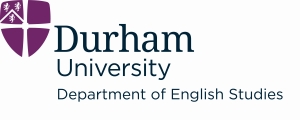'Break the Narrative': Metafictional Anthropocene Aesthetics in Jeanette Winterson's 'The Powerbook' and Ben Lerner's '10:04'
Keywords:
Anthropocene aesthetics, metafiction, Jeanette Winterson, Ben Lerner, contemporary literatureAbstract
Given the difficulties of representing the Anthropocene through narrative, recent experimental texts use metafictional techniques to imaginatively engage with the impact of environmental decline. In contrast to apocalyptic narratives of ecological breakdown, the metafictional Anthropocene aesthetics of Jeanette Winterson's The Powerbook (2000) and Ben Lerner's 10:04(2014) activate the metaleptic potential of literature to provide alternative perspectives. The textual subversiveness of their aesthetics present worldly engagements with environmental crises and reflect upon the production of literature in the Anthropocene. Winterson deploys narrative techniques associated with postmodernism such as such as historiographic metafiction and textual play. However, these devices have an ecocritical edge which demonstrates how storytelling can examine the Anthropocene beyond factual discourses through a uniquely imaginative capacity. Similarly, Lerner’s formal experimentations with autofiction and temporality generate a self- conscious Anthropocene aesthetic. This style leads to textual paradoxes that generate poetic self- consciousness of relational dynamics to articulate hope for change and constructive interventions to contemporary crises. These novels challenge boundaries – between fiction and reality, prose and poetic address – through metafictional experimentation beyond self-conscious artifice on a surface level. These innovative texts can be put into dialogue with ecocritical theory to recognise that environmental crises are complex and multifaceted, but fragile contingencies that humans can still change. Both texts emphasise the relationality of experience and represent humanity’s impact on the environment while illustrating that the future can still be changed.
Downloads
Downloads
Issue
Section
License
Authors who publish with this journal agree to the following terms:
- Authors retain copyright and grant the journal right of first publication with the work simultaneously licensed under a Creative Commons Attribution-NonCommercial-ShareAlike 4.0 licence that allows others to share the work with an acknowledgement of the work's authorship and initial publication in this journal.
- Authors are able to enter into separate, additional contractual arrangements for the non-exclusive distribution of the journal's published version of the work (e.g., post it to an institutional repository or publish it in a book), with an acknowledgement of its initial publication in this journal.
- Authors are permitted and encouraged to post their work online (e.g., in institutional repositories or on their website) prior to and during the submission process, as it can lead to productive exchanges, as well as earlier and greater citation of published work. Authors may deposit the Submitted version; Accepted version (Author Accepted Manuscript); or Published version (Version of Record) in an institutional repository of the author's choice.

